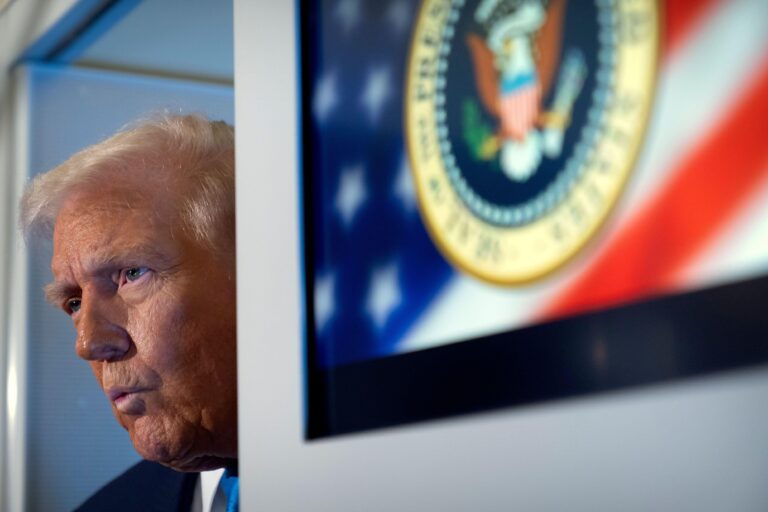Former President Donald Trump has directed the U.S. Department of Defense to “prepare for possible action” in Nigeria, according to reports from NBC News. This directive comes amid escalating security concerns and ongoing instability in the West African nation, signaling a potential shift in U.S. military posture in the region. The move underscores growing attention from American officials on Nigeria’s internal conflicts and the implications for regional and global security.
Trump Signals Heightened US Military Vigilance Amid Nigeria Tensions
Former President Donald Trump has reportedly directed the Defense Department to intensify surveillance and readiness related to the evolving situation in Nigeria. The directive comes amid growing concerns over escalating violence and political instability within the West African nation, which U.S. officials fear could have broader regional implications. Sources indicate that military units are being put on alert to support potential evacuation missions or peacekeeping efforts if American citizens or interests become threatened.
Key focus areas listed in the Pentagon’s briefings include:
- Enhanced aerial reconnaissance and intelligence gathering over hotspots
- Rapid deployment capabilities for special operations forces
- Coordination with regional allies to stabilize the security environment
| Military Preparedness Actions | Status |
|---|---|
| Intelligence Surveillance Flights | Increased |
| Troop Rapid Deployment Readiness | Heightened |
| Regional Security Liaison | Engaged |
Analyzing Potential Scenarios Behind the Defense Department Directive
The Defense Department’s sudden directive to prepare for potential operations in Nigeria signals a significant escalation in U.S. military readiness within the region. Analysts suggest this could relate to various strategic objectives, including counterterrorism efforts aimed at groups like Boko Haram and ISIS-West Africa, or addressing escalating tensions surrounding Nigeria’s internal political instability. The rapid nature of the order hints at intelligence indicating an imminent threat or the need to protect U.S. interests and personnel amid rising regional volatility.
Key scenarios under consideration include:
- Counterterrorism missions: Targeting entrenched militant factions destabilizing West Africa.
- Evacuation operations: Preparing for rapid extraction of American diplomatic and aid staff if security deteriorates.
- Support to Nigerian forces: Offering logistical or intelligence assistance to reinforce local stability efforts.
| Scenario | Objective | Potential Risks |
|---|---|---|
| Counterterrorism Strike | Neutralize terror cells | Regional backlash, civilian casualties |
| Evacuation Mission | Protect U.S. personnel | Hostile encounters, logistical challenges |
| Support Operations | Strengthen Nigerian forces | Long-term involvement, mission creep |
Experts Advise Strategic Engagement to Mitigate Risks in West Africa
Analysts emphasize the importance of calibrated diplomacy and sustained intelligence sharing to address the complex security dynamics in West Africa. Given the recent directives from U.S. leadership, governments and international stakeholders are urged to adopt a multidimensional approach combining military readiness with robust regional partnerships. Experts argue that unilateral action could exacerbate existing tensions, underscoring the need for carefully coordinated strategic engagement that respects local sovereignty while targeting insurgency and terrorism networks.
Key recommendations highlighted include:
- Strengthening joint operations between regional forces and international allies to enhance situational awareness;
- Expanding development aid focused on community resilience to counter extremist narratives;
- Facilitating diplomatic channels to preempt escalation and support political stability.
The table below summarizes critical areas for improvement identified by security experts:
| Focus Area | Recommended Action | Expected Outcome |
|---|---|---|
| Intelligence Sharing | Establish regional data hubs | Faster threat detection |
| Military Coordination | Joint training exercises | Improved operational synergy |
| Community Outreach | Engagement programs | Reduced recruitment by extremists |
To Conclude
As tensions escalate following President Trump’s directive for the Defense Department to “prepare for possible action” in Nigeria, the international community remains watchful of developments in the region. Analysts emphasize the importance of careful diplomacy alongside any military considerations, underscoring the complexities of U.S. involvement in Nigeria’s internal security challenges. Further updates will continue to shed light on Washington’s evolving strategy and the potential implications for regional stability.




